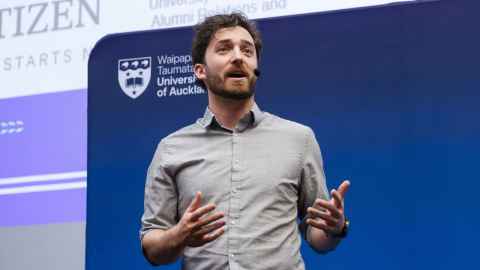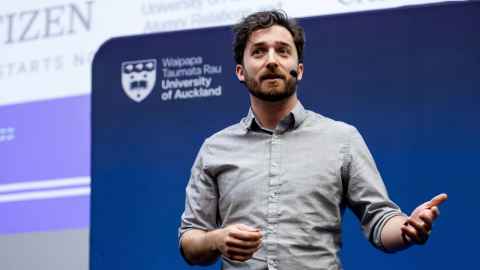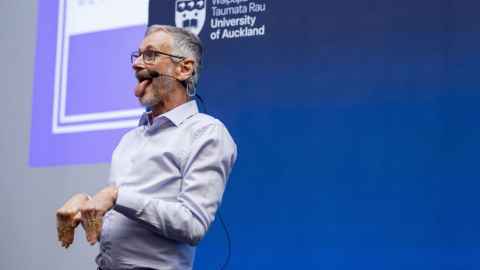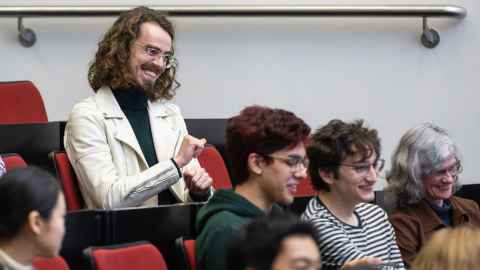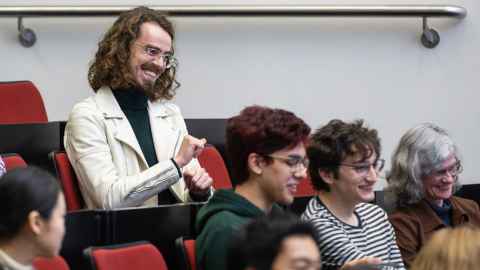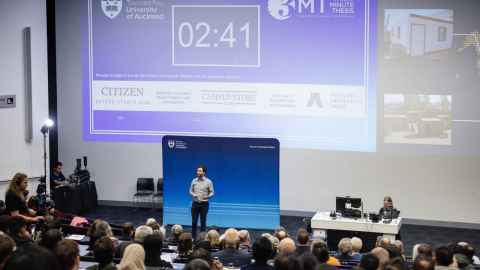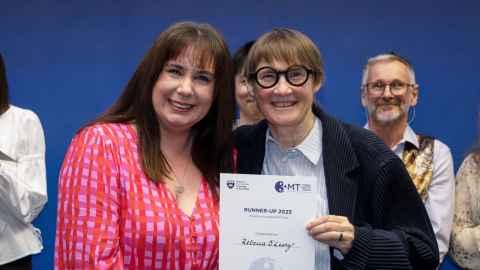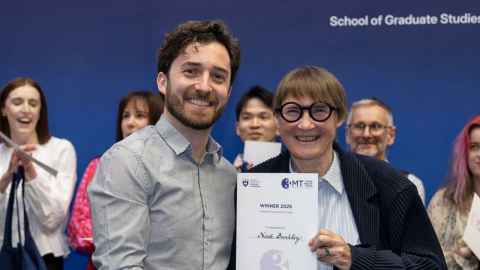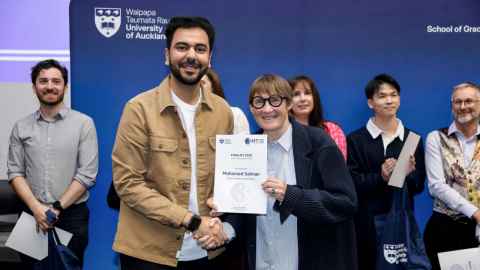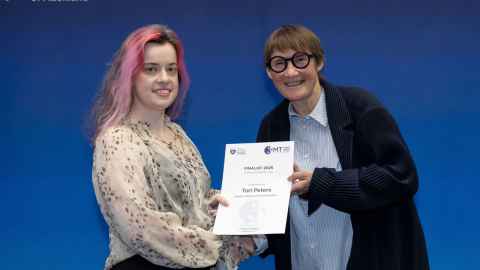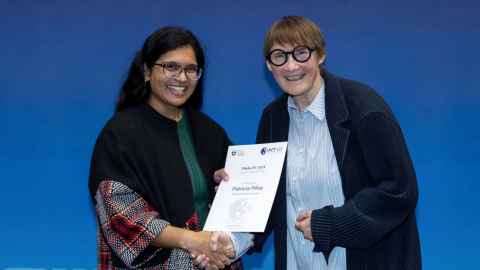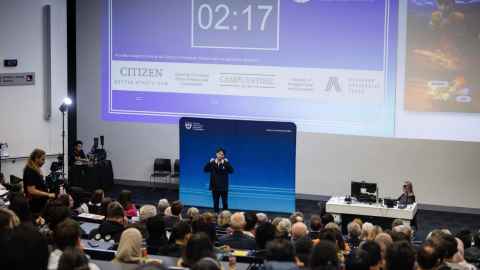Three Minute Thesis (3MT)
Scroll down to find out who won the 2025 University of Auckland 3MT Finals and view photos from the event.

Congratulations to our 2025 UoA winners
Winner: Noah Bunkley (FMHS)
Runner-up: Rebecca O'Leary (Faculty of Arts and Education)
People's Choice: Ross Millar (Faculty of Science)
View photos from 3MT 2025




View our 2025 3MT finalists in action
2025 prizegiving and audience photos
Meet the 2025 finalists
- Caitlin Woods (Liggins Institute)
- Cheng-Huan Lu (Auckland Bioengineering Institute)
- Himashi Rathnayake (Faculty of Engineering and Design)
- Huang Yuan (Business School)
- Kelly Shuttleworth (Auckland Law School)
- Maisha Boteju (Faculty of Science)
- Malinda Sari Sembiring (Business School)
- Mohamed Salman (Faculty of Engineering and Design)
- Noah Bunkley (Faculty of Medical and Health Sciences)
- Patricia Pillay (Faculty of Arts and Education)
- Rebecca O'Leary (Faculty of Arts and Education)
- Ross Millar (Faculty of Science)
- Tori Peters (Faculty of Medical and Health Sciences)
Recent University of Auckland 3MT winners
2025 University of Auckland 3MT Finals
Winner: Noah Bunkley (FMHS)
Runner-up: Rebecca O'Leary (Faculty of Arts and Education)
People's Choice: Ross Millar (Faculty of Science)
2024 University of Auckland 3MT Finals
Winner: Inka Pleiss (Faculty of Science)
Runner-up: Isurie Akarawita (Faculty of Engineering)
People's Choice: Logan Ritchie (ABI)
2023 University of Auckland 3MT Finals
Winner: Cam Hoffbeck (Faculty of Science)
Runner-up: Anantha Narayanan (Faculty of Medical and Health Sciences)
People's Choice: Cam Hoffbeck (Faculty of Science)
2022 University of Auckland 3MT Finals
Winner: Trevyn Toone (Faculty of Science)
Runner-up: Smridhi Marwah (Faculty of Education and Social Work)
People's Choice: Katie Smith (Faculty of Science)
2021 University of Auckland 3MT Finals
Winner: Sam Mackay (Faculty of Business and Economics)
Runner-up: Krish Chaudhuri (Faculty of Engineering)
People's Choice: Joseph Chen (Faculty of Medical and Health Sciences)
What is the 3MT challenge?
The Three Minute Thesis (3MT®) is an academic research communication competition developed by The University of Queensland (UQ), Australia. It is an exciting, fast-paced event that is held annually in more than 900 universities in 85 countries.
In a 3MT competition, doctoral candidates take up the challenge of sharing the story of their research with a general audience in under three minutes, supported by nothing more than a single, static slide.

The University of Auckland Three Minute Thesis (3MT) competition is run by the School of Graduate Studies.





